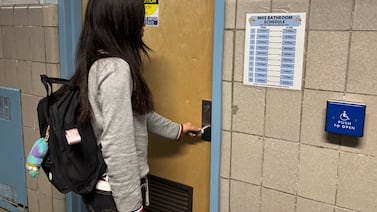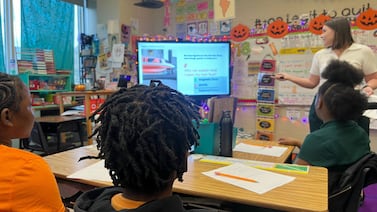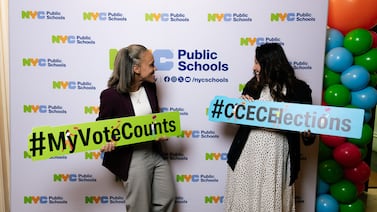Sign up for Chalkbeat Colorado’s free daily newsletter to get the latest reporting from us, plus curated news from other Colorado outlets, delivered to your inbox.
Two years ago, Colorado paid for a pair of studies that calculated the cost of providing an adequate education to all students in the state. The price tag for those studies: $2 million.
This year’s tight budget has made it nearly impossible to make progress on adding the billions more per year the studies said is needed. But lawmakers don’t want the studies to be ignored — and taxpayer money go to waste.
On Wednesday, Senate lawmakers approved a resolution promising to take “concrete steps to gain an understanding of the findings and recommendations of the studies, choose which study’s methodology and recommendations to follow, and develop a multi-year implementation plan.”
The resolution passed with a 27 to 5 vote and has sponsors in the House, but has not been considered there yet.
While resolutions don’t have the same teeth as laws, Sen. Cathy Kipp, a Fort Collins Democrat who sponsored the measure, said lawmakers are now on the record letting education advocacy and policy groups know they want to figure out the issue. Those groups have called on lawmakers to dig into the studies.
Kipp said lawmakers don’t have a plan for next steps after a busy legislative session that will end in early May. Yet she doesn’t want anyone to think lawmakers’ work will be done.
“It’s up to us to get involved with these groups,” Kipp said. “We have to go out there and do that groundwork.”
Lawmakers received the studies at the beginning of the year.
One study from education research firm Augenblick, Palaich and Associates, Inc. says the state would need $3.5 billion more a year and send more money to districts to figure out how best to educate students. The other from the American Institutes for Research says the state would need $4.1 billion more annually and increase spending specifically for students with the highest needs.
Both studies say the state should increase funding for teacher salaries, lower classroom sizes, and improve resources for student learning.
The studies don’t say how lawmakers should raise money, but typically lawmakers would create what’s called an interim committee to dig into the issue. However, to save money, legislative leaders decided to cut those committees, which meet between sessions.
Historically, lawmakers have struggled to greatly increase funding for schools
In fact, this year is the first time lawmakers were able to fully fund education after almost 15 years of pulling away state-mandated funding for other budget priorities. And because of a shortfall, lawmakers weren’t able to increase education funding for next year as much as they’d promised.
Kipp said raising $3.5 billion to $4.1 billion more per year just for education would be very difficult for the state, especially because budget issues are expected to get worse in 2026 and beyond.
Some lawmakers, including Kipp, have said they’d like to eliminate or find a workaround to the Taxpayer’s Bill of Rights, a constitutional amendment that limits revenue and spending. To do that, lawmakers would need to place a ballot measure before voters that typically don’t approve raising taxes, even for schools.
“So the question is: do we starve everything else and put money into education?” she said. “Or do we go out and make the case to voters?”
Jason Gonzales is a reporter covering higher education and the Colorado legislature. Chalkbeat Colorado partners with Open Campus on higher education coverage. Contact Jason at jgonzales@chalkbeat.org.





